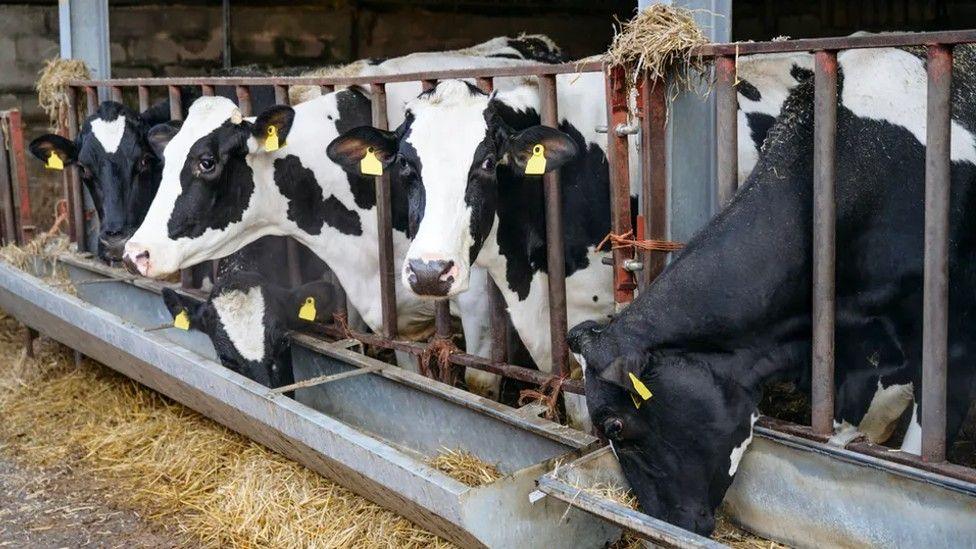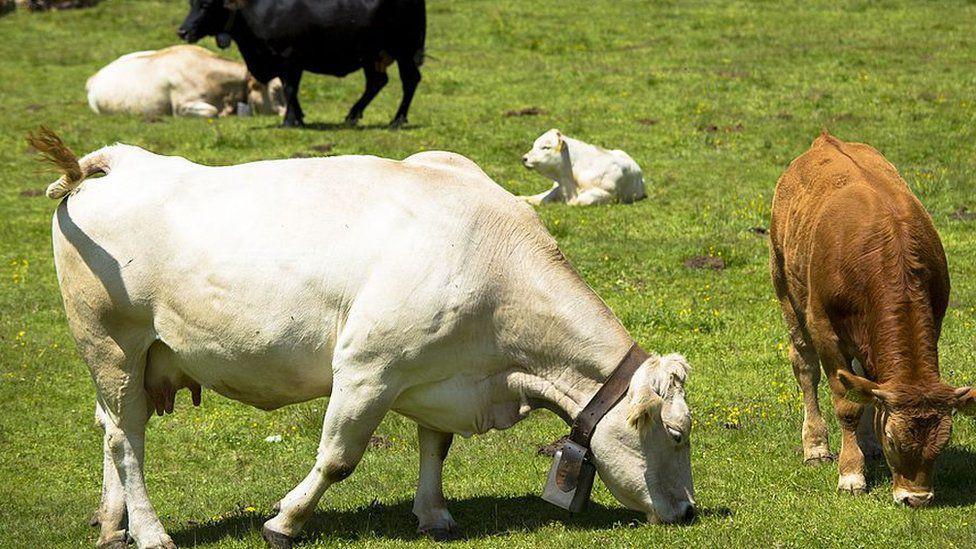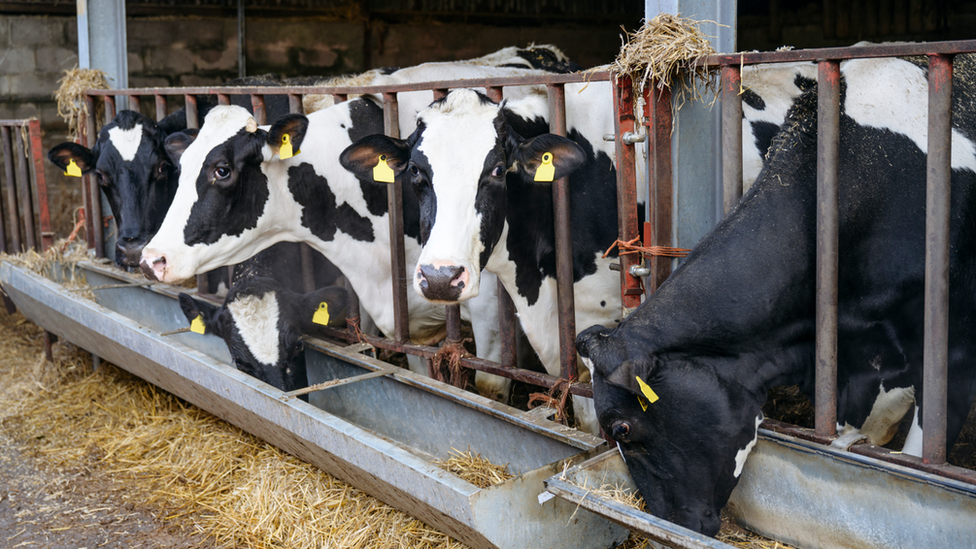Bluetongue virus restriction lifted in Norfolk

Bluetongue virus usually affects cows, sheep and goats
- Published
A Temporary Control Zone (TCZ) put in place after the bluetongue virus was found on a cattle farm in Norfolk has been lifted.
Cases of the virus were confirmed in December, causing a 10km (6.2-mile) control zone to be established around the site close to Cantley.
The Department for Environment, Food and Rural Affairs (Defra) said there was currently no evidence of the virus circulating, external.
Christine Middlemiss, chief veterinary officer, said: "I urge farmers to remain vigilant and report any suspicions to the Animal and Plant Health Agency (APHA)."
In November, cases of bluetongue virus were discovered for the first time in the UK since 2007 at a farm near Canterbury.
A month later, two cases were confirmed in Norfolk, causing a control zone for moving livestock to be put into force.
The virus is spread by the bites of midges and can cause infertility and breathing problems in sheep, cattle and goats.
However, it does not affect people or food safety.
Ms Middlemiss added: "We are now in a seasonally low vector period, when midge activity is much lower and there is reduced risk of disease, meaning we can lift the temporary control zones.
"However, our robust disease surveillance procedures continue."
Follow East of England news on Facebook, external, Instagram, external and X, external. Got a story? Email eastofenglandnews@bbc.co.uk, external or WhatsApp us on 0800 169 1830
- Published21 December 2023

- Published9 December 2023

- Published27 November 2023
